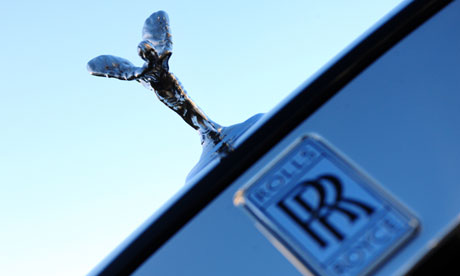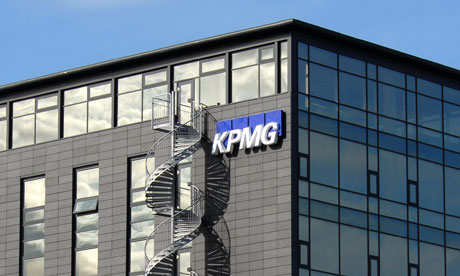The issue of taxation is never far from the headlines, and doubly so in times of austerity. So it’s hardly surprising that the likes of Google, Starbucks and Goldman Sachs have come under fire in recent years for under-payment of tax.
But how much tax should a company pay? At first glance, the answer is obvious: only as much as the law demands. The economist Andrew Lilico put the point well recently: “The assets of… a company do not belong, per se, to the company’s employees… it’s not for the managers or accountants of a company to decide that shareholders ought to pay some extra tax, not legally required of them, and then do so on their behalf.” Not only that, any claim to the contrary is an attack on private property itself: “It is, as it were, to say that all money belongs to society collectively, and 'we’ have an intention as to how much you get to use yourself and how much goes to the state, and if you avoid tax you end up using more of society’s collective money than it intended for you to use.”
This line of thought is extremely seductive, and very widely held. But it is mistaken, both in principle and in law.
First, the law. The Companies Act 2006 requires directors to promote the success of the company, but with regard to six factors: the likely long-term consequences of a decision; the interests of employees; relationships with suppliers and customers; the firm’s impact on the community and the environment; its reputation for high standards of business conduct; and the need to act fairly between shareholders. The effect is precisely to prevent managements from automatically pleading a duty simply to maximise shareholder value. While they don’t have a free hand, they do have a genuine choice as to how aggressively to avoid tax.
But the deeper point is this. Unlike small businesses, or the vast majority of the working population, larger companies (and especially multinationals) have enormous scope to avoid tax. In the absence of common, binding global standards, that scope has expanded alongside the complexity of tax law.
For many of these firms, tax is effectively optional. In avoiding it, they are using their size to advantage themselves over purely domestic competitors – as anyone who has tried to compete with Amazon can testify. When decent people are outraged by companies that adopt labyrinthine legal structures to avoid tax —whose main effect is to enrich the lawyers and accountants —what angers them is a belief that this power, this choice, has been abused.
So, again, how much tax should these companies pay? Patently, the law cannot answer that question. But neither can economics. For economics sees companies merely as bundles of contracts, which allocate different financial incentives to shareholders, directors, managers and employees.
This can be a useful analytical tool, but it falls short of setting proper standards of behaviour. Indeed, it does the opposite: there is increasing evidence that people exposed to purely financial stimuli become more greedy, more short-term and more individualistic. Since really effective management is about inspiration and teamwork over the long term, monetary incentives often undermine, rather than reinforce, success.
In fact, all power – private and public – brings with it responsibility. In the words of the great American judge Benjamin Cardozo, “a trustee is held to something stricter than the morals of the marketplace. Not honesty alone, but the punctilio of an honour the most sensitive, is then the standard of behaviour.” So it is not enough just to be a “good corporate citizen”.
This insight demands a shift of perspective, from the language of law and economics to one of stewardship and ownership. It is a shift with profound consequences. Within companies, it implies a long-term focus resilient enough to resist market pressures just to meet quarterly earnings targets. It implies a sense of personal responsibility – indeed, contrition – from management that has been largely missing from recent arguments over tax, or the causes of the banking crisis. It also demands a degree of modesty in how directors and managers reward themselves. And it invites companies to reconsider the privilege of limited liability, and the connection – which existed from the earliest chartered companies on – between corporate activity and the public interest.
But the idea of stewardship does not end there. For share ownership also carries with it power, and so responsibility. A recent review by Professor John Kay has done much to advance such ownership; it could be greatly assisted by a vigorous collective response from fund managers. And Parliament has its own role to play in reinforcing these values. It must ensure a clear, stable yet flexible framework of law within which companies can operate; and it must ensure effective enforcement, and prosecution, when the law is broken.
What really matters, however, are shared public standards. Lew Preston, as head of JP Morgan, once circulated a memo to all staff: “It has come to my attention that some employees have been preferring the interests of their own departments to the interests of the bank as a whole. Henceforth this will be grounds for immediate dismissal.” That’s more like it.
Jesse Norman is MP for Hereford and South Herefordshire








